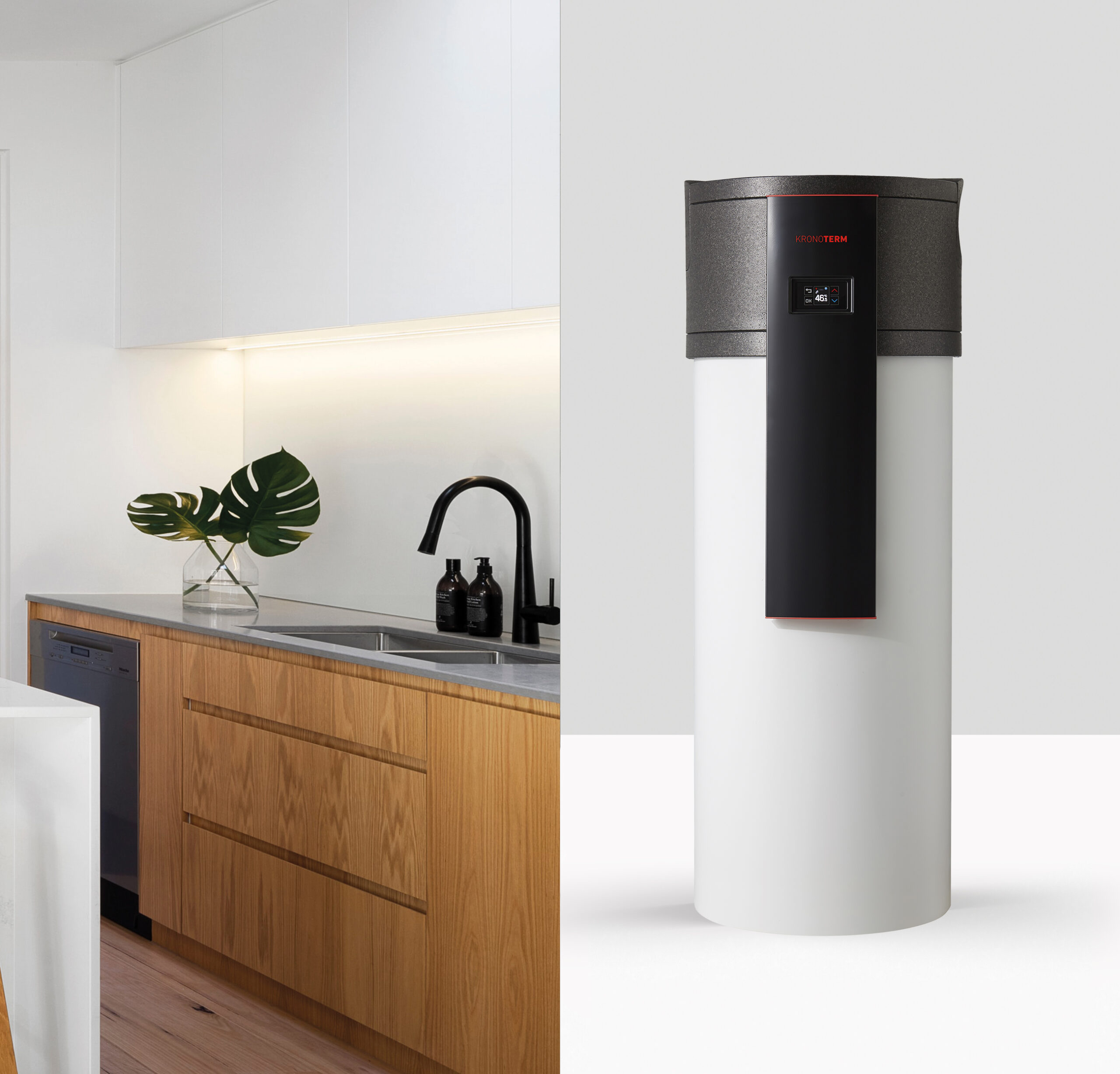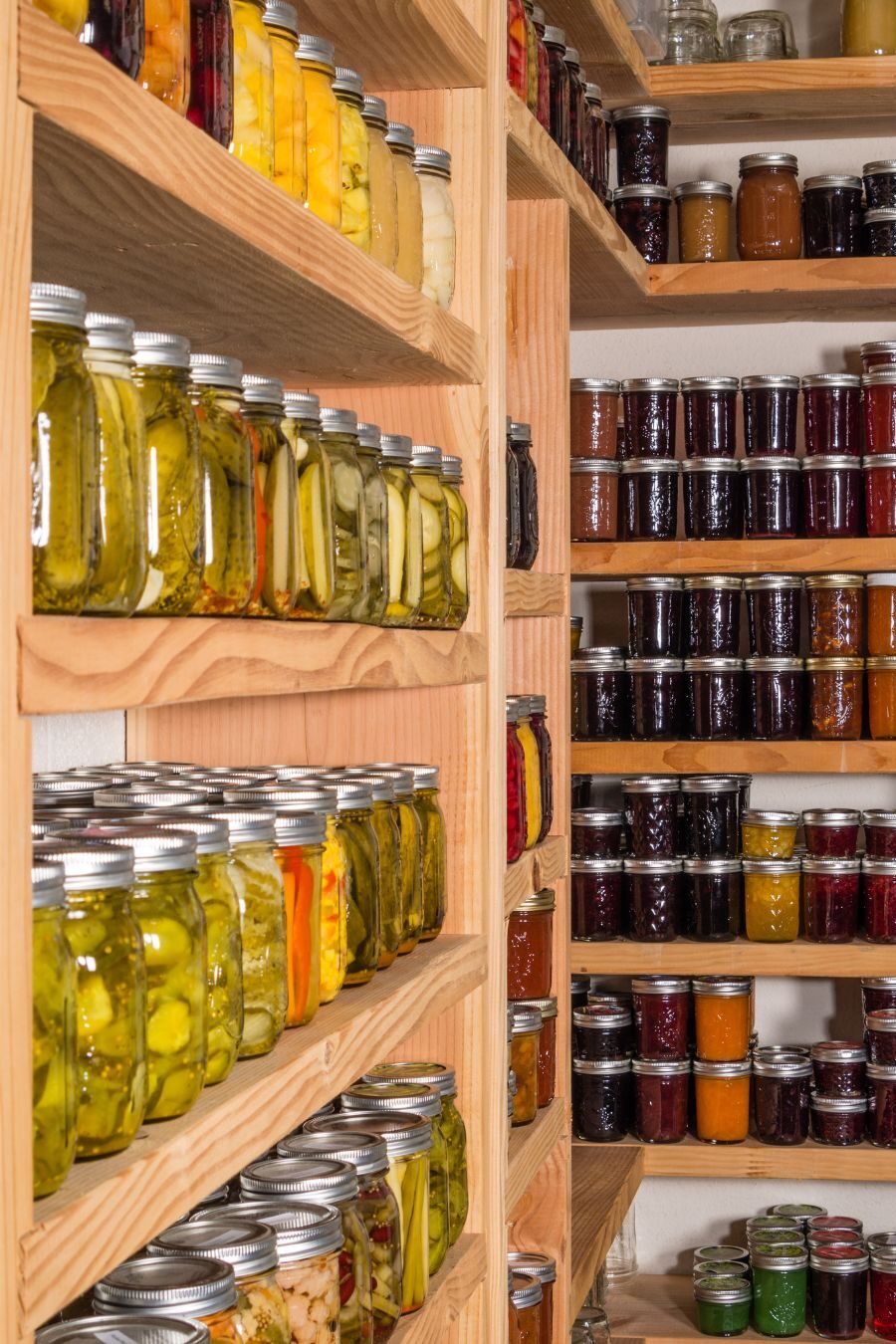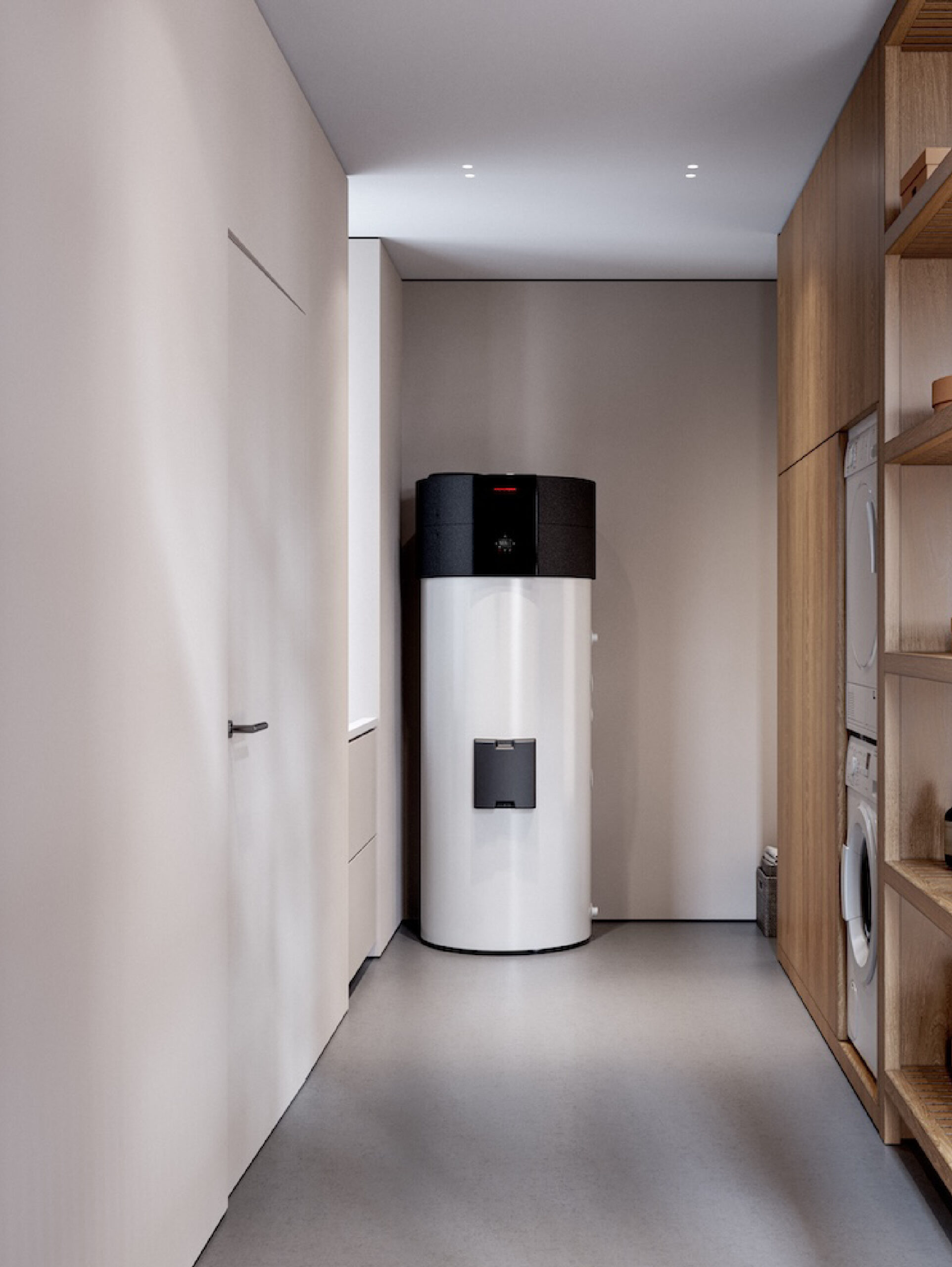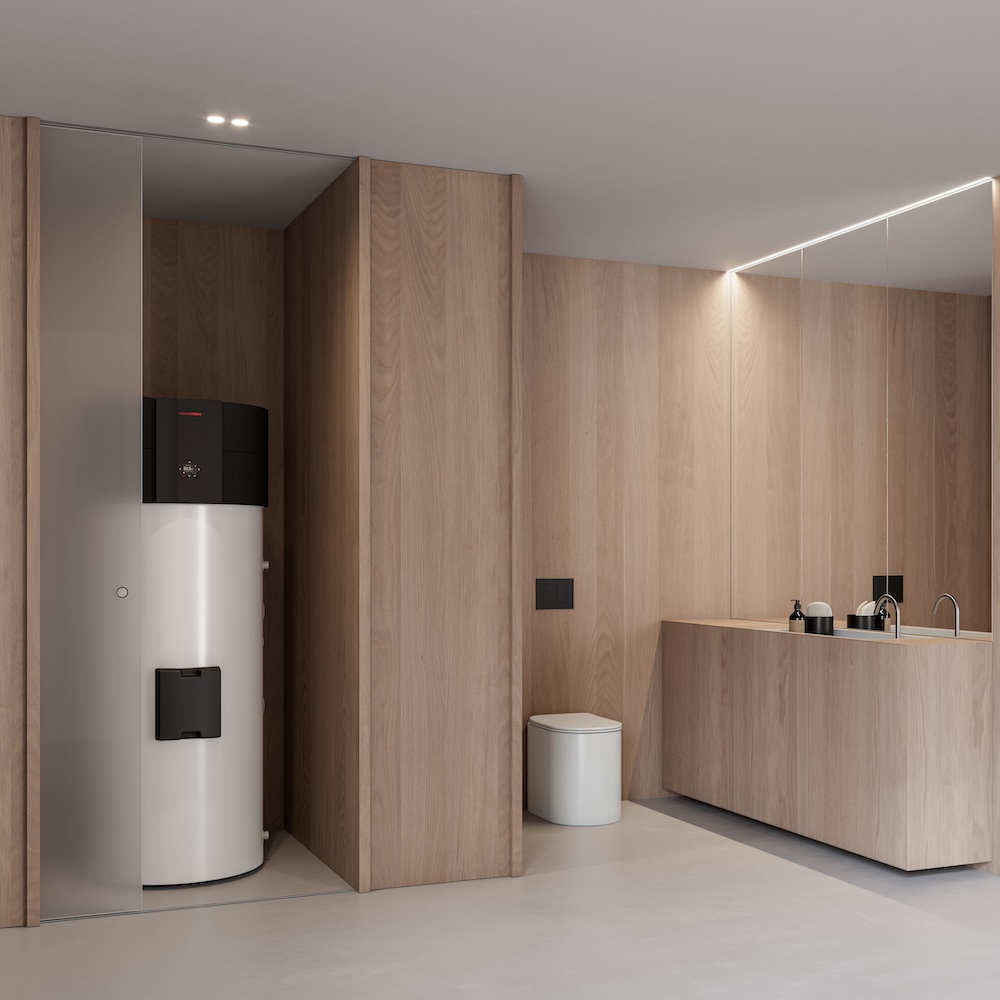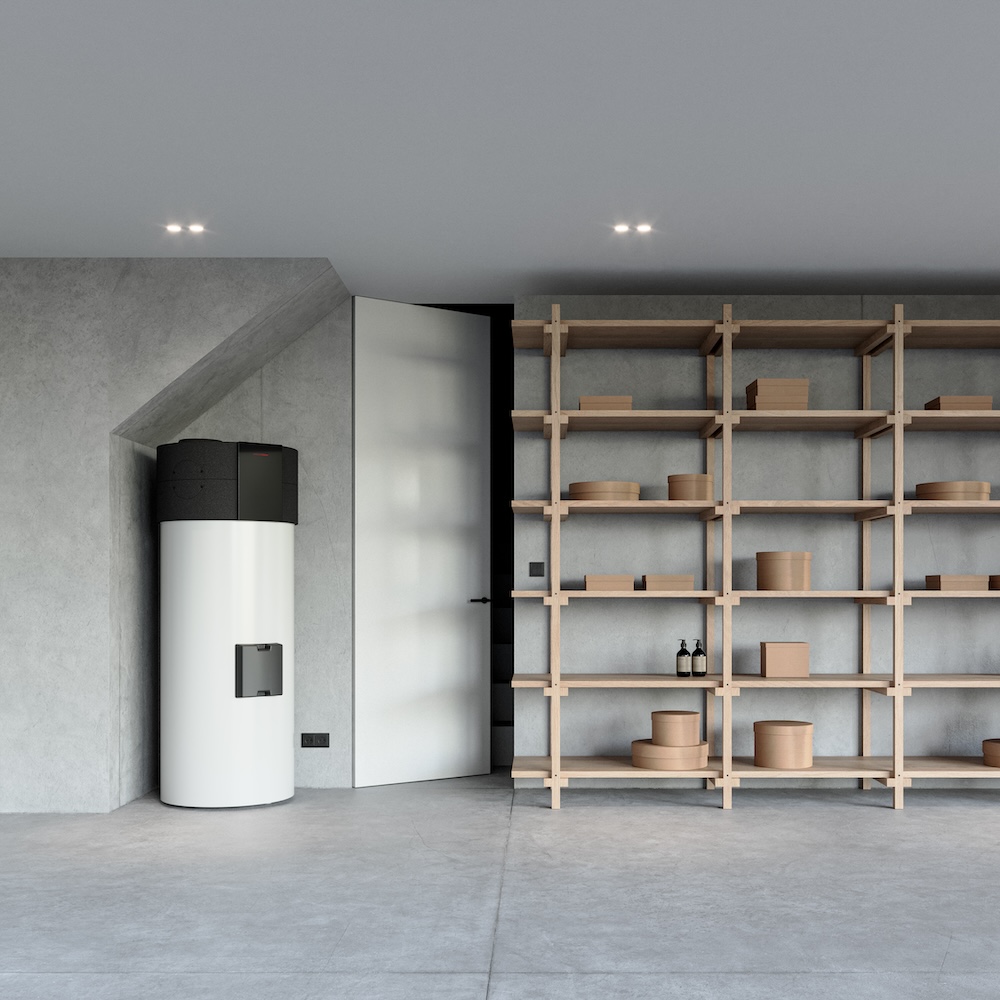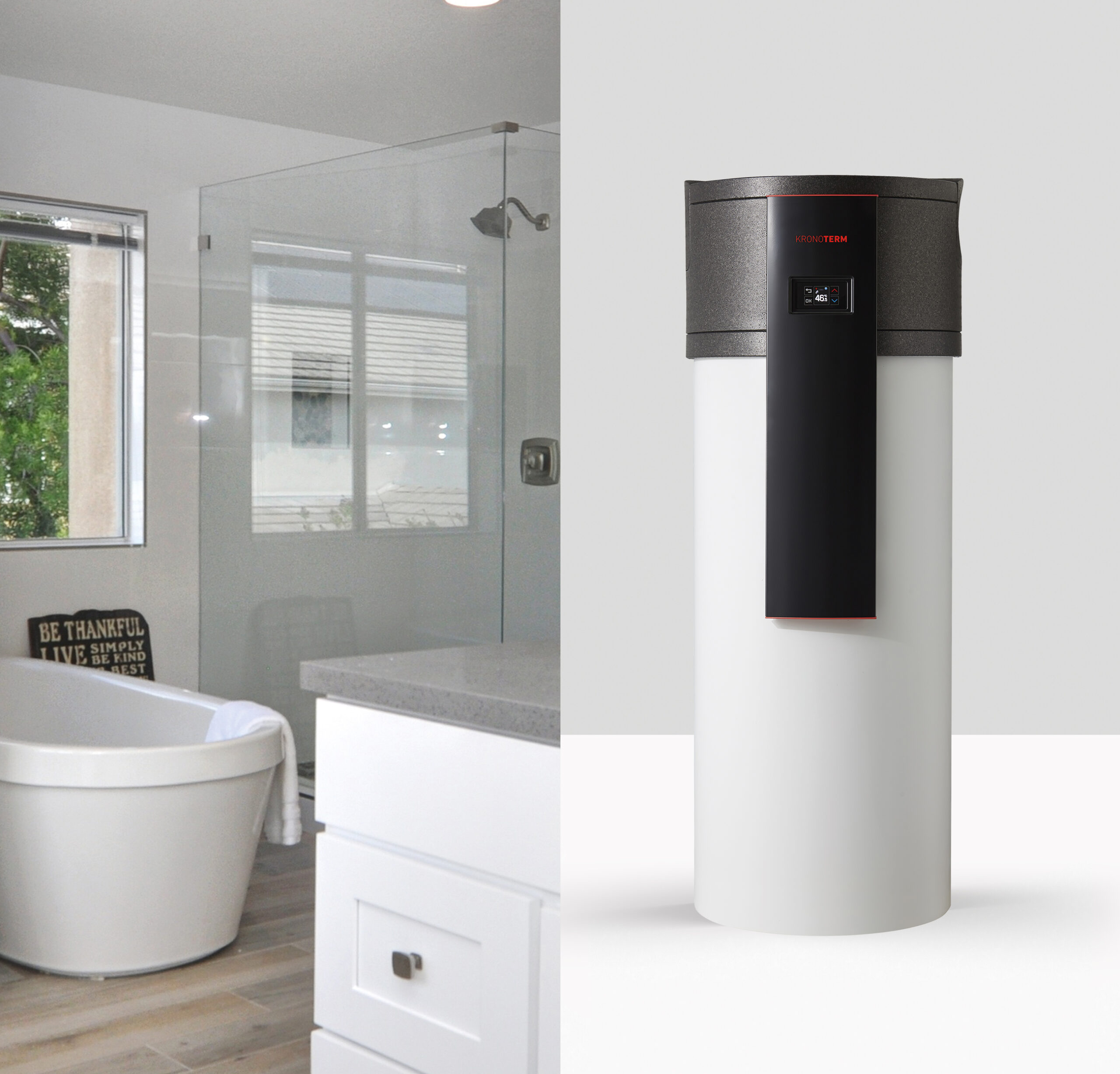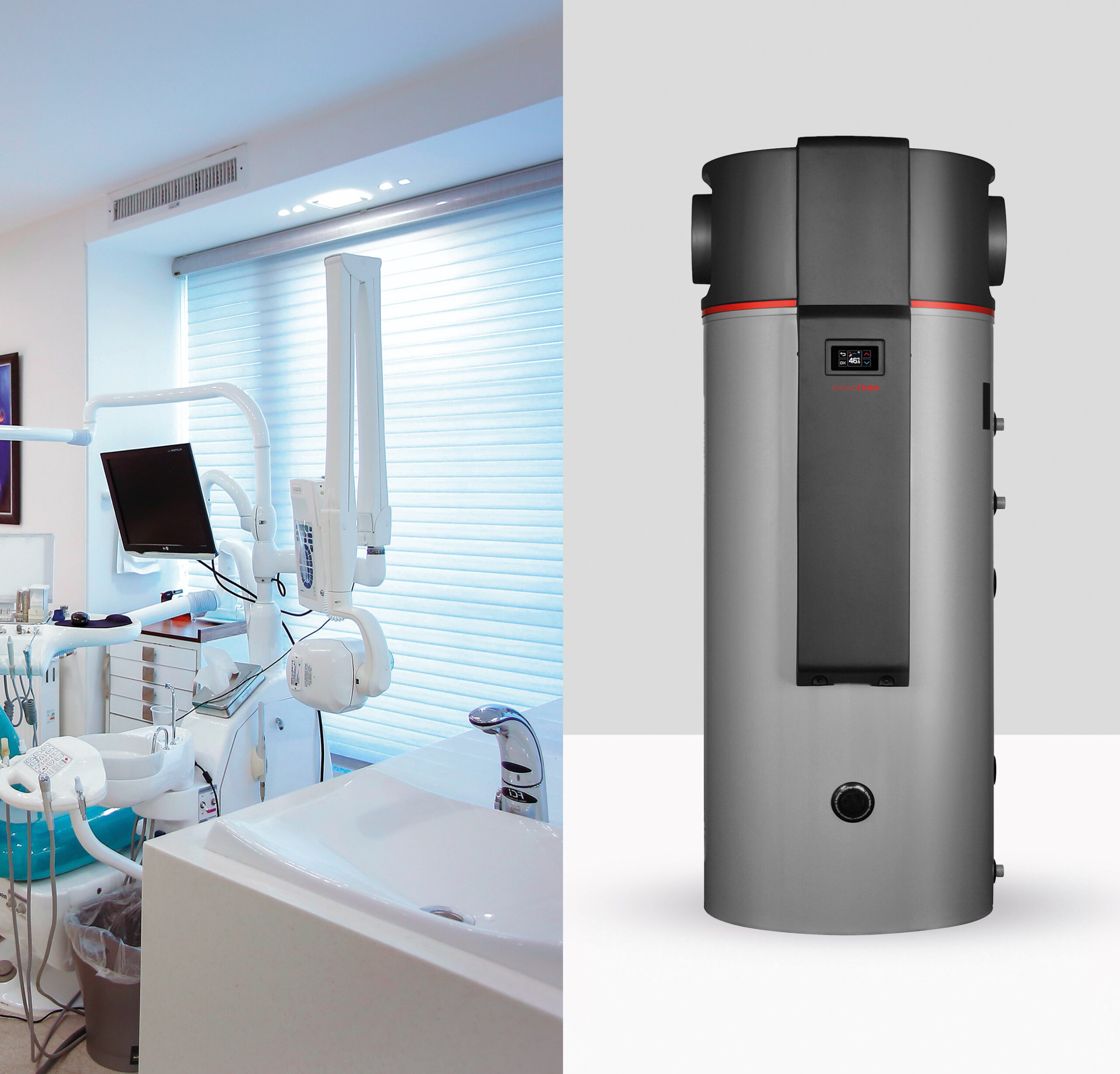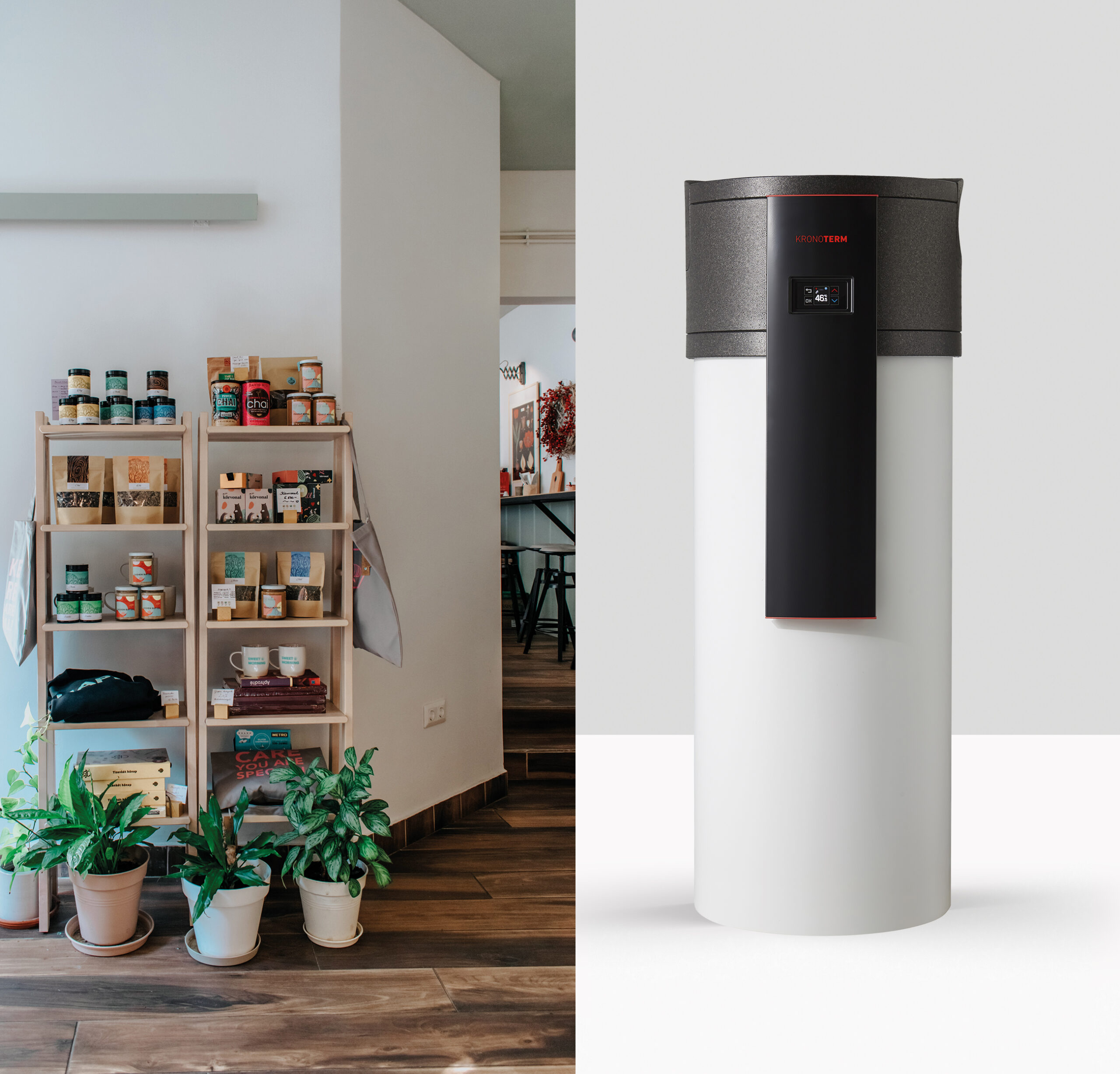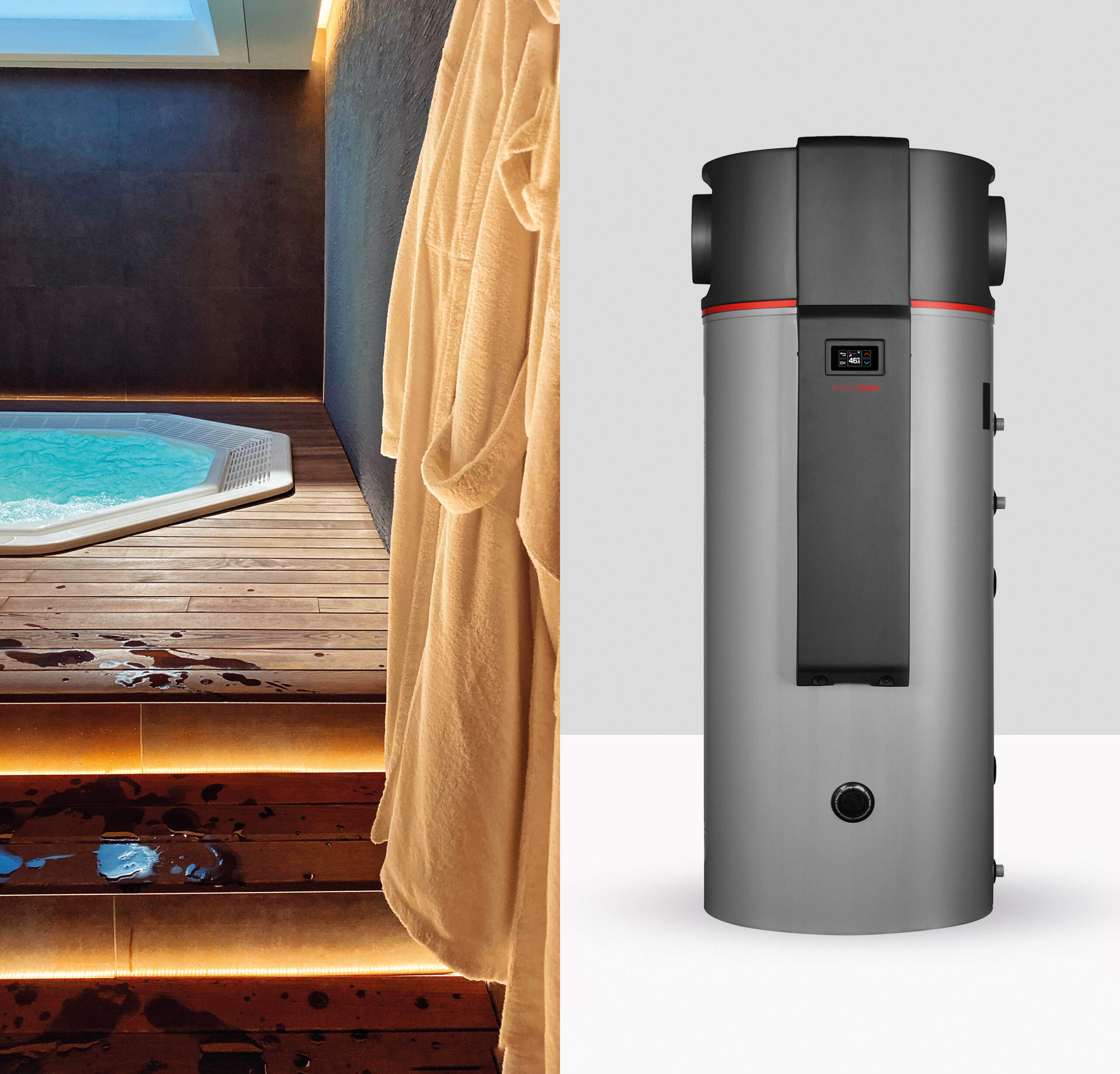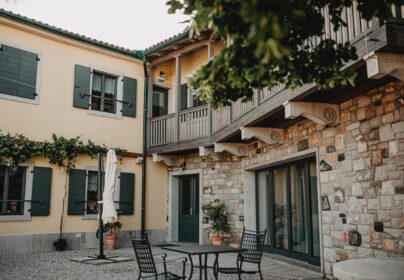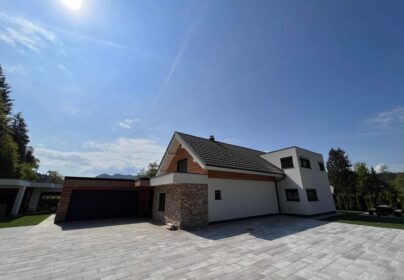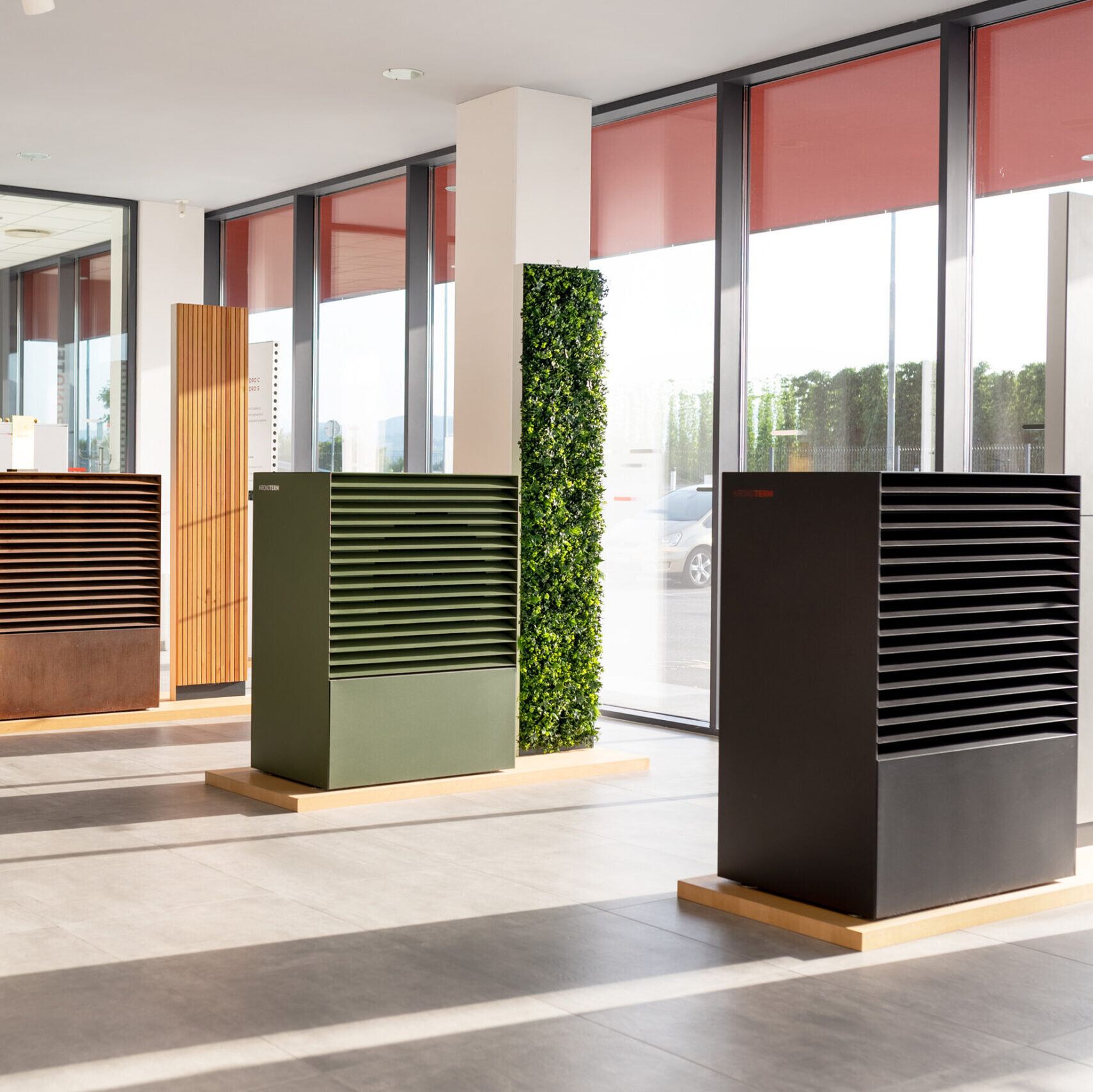Every household has different hot-water needs, but daily consumption follows a predictable pattern. A four-person household typically uses around 200 liters of hot water per day for showers, washing, and cleaning.
To cover this demand efficiently, KRONOTERM designed the ESSENTA heat pump with a 300 liter storage tank — the optimal capacity for most homes and small commercial applications.
When heated to 55 °C, this 300 L tank delivers about 530 liters of usable hot water at 40 °C per heating cycle, and with several automatic heating cycles throughout the day, it can provide over 1,000 liters of hot water daily. This ensures a steady and comfortable supply even during peak use, while maintaining excellent energy efficiency and low standby losses.
For higher demand or larger households, KRONOTERM also offers systems with extended or external storage options, guaranteeing the perfect match for every application.



